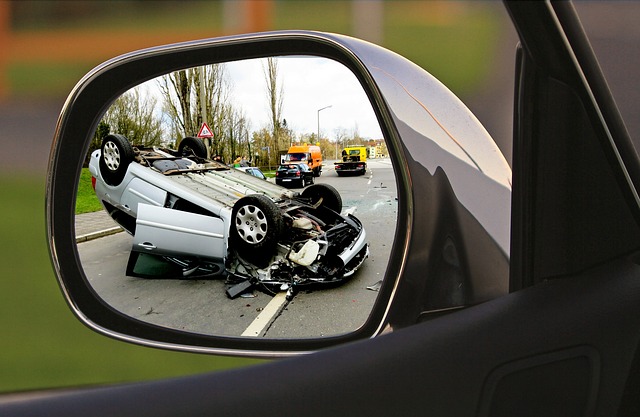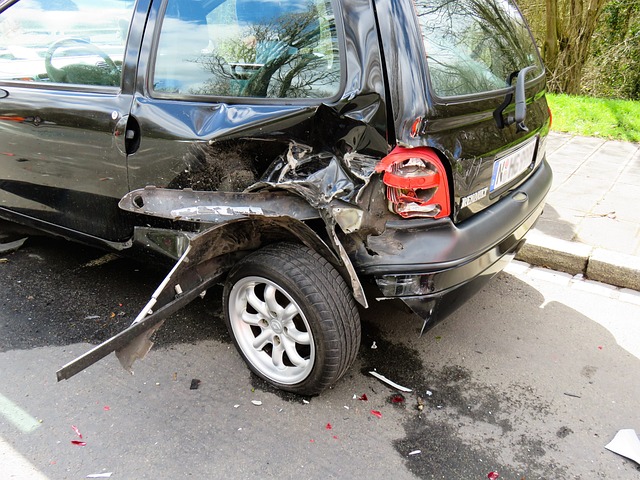Car accidents can be profoundly disruptive, resulting in not only physical injuries but also emotional distress, financial difficulties, and long-term consequences for victims and their families. When seeking compensation for the damages incurred, the success of your claim often depends on the strength and credibility of the evidence you present.
Evidence is the cornerstone of car accident case evaluations, enabling attorneys, insurance adjusters, and courts to determine liability, assess damages, and reach fair resolutions.
In this article, we delve into the multifaceted role evidence plays in car accident cases, exploring how it is collected, analyzed, and used to achieve a favorable outcome. We also provide actionable tips for ensuring you gather and preserve the most compelling evidence possible.
Establishing Fault and Liability
Determining who is at fault is the foundation of any car accident claim. Liability dictates which party (or parties) is responsible for compensating the injured individual. Evidence is critical in building a clear and convincing narrative of the events leading up to and following the collision.
Key Evidence in Establishing Fault:
- Police Reports:
Law enforcement officers responding to the accident scene usually compile a report documenting their observations, interviews with involved parties, and any citations issued. Police reports often provide an objective starting point, though they may not be admissible in every court jurisdiction.
- Eyewitness Testimonies:
Witnesses who saw the accident unfold can provide independent accounts that corroborate or contradict the narratives of the drivers involved. The credibility of these witnesses is crucial, and their testimony often holds significant weight.
- Photographic and Video Evidence:
Images of the accident scene, vehicle damage, skid marks, and surrounding conditions (e.g., traffic signs, weather, road conditions) can help reconstruct the event. In today’s digital age, many accidents are captured by nearby surveillance cameras, dashboard cameras, or even smartphones of bystanders.
- Traffic and Surveillance Footage:
Intersection cameras, security systems at nearby businesses, and other recording devices may provide a timeline of events or capture critical details such as traffic signal violations or reckless driving behavior.
- Accident Reconstruction Reports:
In complex cases, experts in accident reconstruction may analyze the evidence to determine factors like vehicle speed, point of impact, and the sequence of events. Their findings can serve as persuasive evidence in negotiations or court proceedings.
Challenges in Establishing Fault:
Liability is not always clear-cut, and comparative or contributory negligence laws in certain states may assign partial blame to multiple parties. For example, if you were speeding but the other driver ran a red light, you might share responsibility for the accident. In such cases, evidence becomes even more crucial in minimizing your liability percentage.
Proving the Extent of Damages
Once liability is determined, the next step is proving the extent of the damages sustained. Compensation in car accident cases can cover a range of economic and non-economic damages, including medical expenses, property damage, lost wages, and pain and suffering.
Economic Damages:
These damages have a clear monetary value and are supported by tangible documentation.
- Medical Records and Bills:
Evidence of injuries sustained in the accident includes diagnostic reports, treatment plans, surgery records, and prescriptions. These documents establish a direct link between the accident and the medical issues.
- Repair or Replacement Costs:
Receipts, estimates, or invoices from auto repair shops detail the cost of fixing or replacing your vehicle. Photographs of the damage are also essential in showing the severity of the impact.
- Lost Income:
Pay stubs, employment contracts, or employer statements demonstrate the income lost due to your inability to work after the accident. This evidence also applies to future earning potential if the injuries lead to long-term disability.
Non-Economic Damages:
These damages are less tangible but equally important in reflecting the broader impact of the accident.
- Pain and Suffering Documentation:
Journals or diaries detailing your daily struggles, emotional distress, or chronic pain can substantiate claims for pain and suffering. Testimony from mental health professionals may also support these claims.
- Impact on Quality of Life:
Evidence showing limitations on hobbies, family activities, or daily routines can help demonstrate how the accident has diminished your overall quality of life.
Challenges in Proving Damages:
Insurance companies often scrutinize claims for damages, especially non-economic ones. They may argue that injuries were pre-existing or exaggerated. Robust evidence countering these claims is vital to receiving fair compensation.

Refuting Counterclaims
In many car accident cases, the opposing party or their insurer will attempt to minimize their liability or reduce the value of your claim. Evidence allows you to effectively refute such counterclaims and protect your case.
Common Counterclaims and How Evidence Counters Them:
- You Were Partially at Fault:
If the other party alleges that you contributed to the accident, evidence such as dashcam footage, GPS data, or witness statements can prove otherwise.
- Your Injuries Are Exaggerated:
Insurers may question the severity of your injuries, particularly if they cannot visibly assess them (e.g., soft tissue injuries or psychological trauma). Medical records, doctor testimonies, and diagnostic scans counter these arguments.
- The Accident Was Unavoidable:
If the other driver claims the accident was due to external factors (e.g., weather conditions or mechanical failure), evidence such as maintenance records, weather reports, or expert analyses can demonstrate negligence.
- Pre-Existing Conditions:
Insurance companies often try to attribute injuries to pre-existing medical issues. Clear and consistent medical records, as well as statements from treating physicians, are essential to proving the accident caused or exacerbated your condition.
Maximizing Settlement Value
The ultimate goal of gathering evidence is to secure a settlement that accurately reflects the scope of your damages. Insurance companies are motivated to minimize payouts, so evidence provides leverage during negotiations.
Evidence That Strengthens Your Negotiating Position:
- Detailed Documentation:
Having comprehensive and well-organized evidence, from medical bills to repair invoices, shows that you are prepared and serious about your claim.
- Expert Testimonies:
Medical experts, vocational experts, and accident reconstruction specialists can provide credible testimony to support your case.
- Demonstrating Future Losses:
Evidence that accounts for ongoing medical treatment, reduced earning capacity, or long-term disability ensures you are compensated for future hardships.
Challenges in Settlement Negotiations:
Insurance adjusters may dispute the admissibility or credibility of your evidence. Legal representation can ensure that your evidence is presented effectively, maximizing the value of your claim.
Preparing for Court
If settlement negotiations fail, evidence becomes the cornerstone of your case in court. Judges and juries require clear, compelling proof to determine liability and award damages.
Requirements for Admissible Evidence:
- Relevance:
Evidence must directly pertain to the case and support your claims.
- Reliability:
Evidence must be credible, such as authenticated photographs or verified witness statements.
- Proper Handling:
Evidence must be collected and preserved according to legal standards to avoid claims of tampering or contamination.
The Role of Legal Counsel in Presenting Evidence:
Experienced attorneys know how to organize and present evidence persuasively, whether through compelling opening statements, expert testimony, or visual aids like accident reconstructions.
Practical Tips for Gathering and Preserving Evidence
- Act Immediately:
Take photographs of the scene, collect contact information from witnesses, and request a copy of the police report as soon as possible.
- Seek Medical Attention:
Even if injuries seem minor, a medical evaluation ensures injuries are documented early, creating a record of their connection to the accident.
- Organize Your Records:
Create a dedicated folder (physical or digital) for all accident-related documents, including receipts, emails, and medical reports.
- Consult Experts:
Accident reconstruction specialists, medical professionals, and attorneys can help analyze and strengthen your evidence.
- Avoid Social Media:
Posts about your recovery or accident can be used against you. Stay cautious about what you share online.
Conclusion
Evidence plays an indispensable role in car accident case evaluations, shaping every aspect of the claims process. From establishing liability to proving damages and refuting counterclaims, the quality and organization of your evidence determine the strength of your case. Acting quickly, keeping detailed records, and seeking professional guidance are essential steps in ensuring a fair and favorable outcome. By understanding the importance of evidence and proactively collecting it, you can protect your rights and secure the compensation you deserve.
Secure Your Recovery After a Car Accident in Phoenix, AZ with Phoenix Injury Attorneys
At Phoenix Injury Attorneys, we understand the overwhelming stress that a car accident can bring to your life. Our experienced and compassionate legal team, based in Arizona, is dedicated to providing not only skilled legal representation but also genuine care and empathy. Specializing in car accident claim assistance in Phoenix and the surrounding areas, we recognize that navigating the aftermath of an accident involves more than just legal proceedings—it’s about helping you recover and regain stability. By choosing us, you’re not just hiring legal experts; you’re gaining a team of advocates deeply committed to your well-being and financial recovery.
Led by Khalil Chuck Saigh, our collaborative approach ensures that every client benefits from our collective expertise, making us a strong force in pursuing your rights and fair compensation. We are committed to providing personalized attention and tirelessly working to achieve the best possible outcomes for our clients in Phoenix and throughout Arizona. Trust Phoenix Injury Attorneys to handle your car accident claim with the utmost care and professionalism, so you can focus on healing and moving forward with confidence. Reach out to us today to learn more about how we can assist you through this challenging time.
Disclaimer
The materials available on this website are for informational and entertainment purposes only and not to provide legal advice. You should contact your attorney to obtain advice concerning any particular issue or problem. You should not act or refrain from acting based on any content included in this site without seeking legal or other professional advice. The information presented on this website may not reflect the most current plumbing developments. No action should be taken in reliance on the information contained on this website and we disclaim all liability concerning actions taken or not taken based on any or all of the contents of this site to the fullest extent permitted by law.


